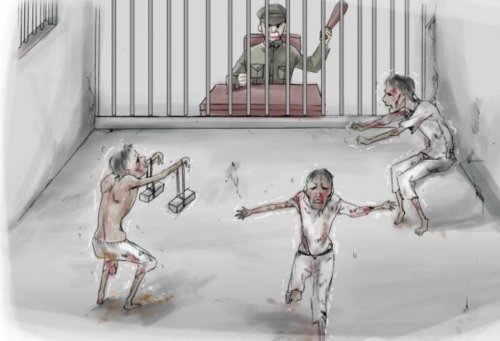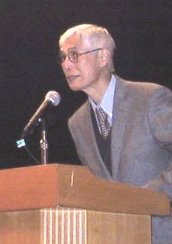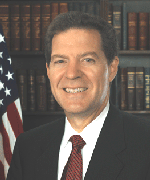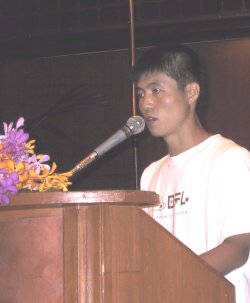Category Archives: Prison Camp
NK Defectors Tell About Death Camp 12

Camp 12 Chongo-ri Kyo Hwa So
On February 5, LFNKR hosted a seminar during One World Festival, an annual event held in Osaka, Japan. For the seminar this year, LFNKR invited Mr. Sung-hun Kim, the chief of Database Center for North Korean Human Rights (NKDB) and three North Korean defectors who have resettled in South Korea. Each of the three defectors has experienced the nightmare of North Korea’s Camp 12 Chongo-ri Kyo Hwa So, a camp well known for its high death rate.
Mourn Not for Kim Jong-il
Mourn Instead for his Victims
On Dec. 28 in Pyongyang a funeral will be held for Kim Jong-il. As do most of those involved in the North Korean human rights issue, we at LFNKR strongly feel that this funeral should commemorate the victims of Kim Jong-il and his brutal regime. We call upon the world – mourn not for this dead dictator.
LFNKR’s Kato Addresses Int’l Conference

Speakers included: Willy Fautre (Human Rights without Frontiers, President); Vincent Brossel (Reporters without Borders); David Hawk (human rights investigator and advocate and author of “the Hidden Gulag”); Chuck Downs (US Committee for NK HR); and Hiroshi Kato (Life Funds for North Korean Refugees).
Text of Kato Hiroshi’s Speech
It is my privilege and honor to present this speech here at the North Korean Human Rights Campaign 2008
Our main purposes at Life Funds for North Korean Refugees are: first, to provide humanitarian aid and protect the human rights of North Korea defectors in China and Southeast Asia; and second, to reach out to people in North Korea with food and medicine.
Out of 100,000 North Korean refugees hiding out in Northeastern China, about 70-100 are under LFNKR’s protection as of July 2008.
In my opinion, the worst form of human rights violation is human trafficking. The number of human trafficking victims is not yet clearly known, but we estimate the number to be more than 70% of all defectors. An investigation conducted in the villages where our shelters are located showed that 10-20% of all villagers are North Korean women who have been sold to Chinese men in the village. Out of 60,000-70,000 women defectors, at least half are of childbearing age.
Babies between Han Chinese and ethnic Koreans will reach 30,000-35,000, most of whom are unregistered.
The youngest victim of human trafficking I have met was 8 years old at the time she was sold. She was brought up in an ethnic Korean family in Heilong City, Jilin Province, but was sold for 1,500 RMB to an ethnic Chinese man at the age of fourteen. She gave birth at the age of 19. After the baby was born, she was sold again by a broker to a different man, and unfortunately I do not know where she is now. Girls being sold by a broker after childbirth are now very common to see.
The price of women varies: usually 5,000-10,000 RMB (approximately $500-1,000 US dollars), for girls up to the age of 20; 3,000-5,000 RMB (or $300-500 US dollars), for up to the age of 30; 2,000-2,500 RMB ($200-250 USD) for up to the age of 40 with a child; and 500-1,000 RMB (or $50-100 US dollars) for children.
However, this year, the price has increased. A woman in her 20s is sold at the price of 20,000 RMB because the number of female North Korean defectors is decreasing. North Korean women seem hesitant to escape the country due to the crackdown operation for the security of the Beijing Olympic Games, as well as forced repatriation that entails serious threats to life upon being returned to North Korea.
The trafficking of North Korean women goes back to 1985 when it was not yet as systematic. It was mere match-making organized by a broker for a rural Chinese man who could not marry in an orthodox way. At that time, the Chinese government welcomed them, and there was neither arrest nor forced repatriation. (But this has now become an organized business-like activity.)
Young women from three provinces in Northeast China that were excluded from China’s open economy reform policy started to move to the Southern China Economic Zone, Japan and Korea to find work. As a result, the female population in these rural areas has decreased considerably. The demand for North Korean women naturally became greater. The role of young North Korean women in replacing ethnic Chinese women was considered significant. The brokers taking advantage of the situation started to appear during this time and it became more organized and business-like.
In the late 1990s, the food rationing system of North Korea collapsed.
North Koreans seeking food started to escape to China, and from 1997 there was a massive influx of people from North Korea into China.
Ethnic Koreans in China provided their starving brethren with food and clothing. However, due to some people trying to take advantage of the goodwill of these ethnic Chinese, and an increased crime rate, the Chinese government started to strengthen the policy concerning North Korea defectors.
In 2000, trafficking of North Korean women became more serious. More women had risked their lives escaping to China and fell into the clutches of brokers. The reports made by staff members in charge of our shelters outlines many of these cases.
The Chinese police, in secret communication with the North Korean National Security Agency, has prosecuted these women who are illegally married to rural Chinese men. If a woman who had a child at the time of marriage is prosecuted, then the child no longer receives any protection and becomes an orphan. The child usually survives by helping with farming, taking care of cows in return for room and board.
The children of North Korean women sold to Chinese men face a bleak future. An infant can choose neither his or her own country nor parents. A mother has no choice but to sell herself.
Because the stay of these women is illegal their children are also stateless. They are not Chinese and not North Koreans either. They have no right to education or anything else. They have no human rights and are staying illegally. These children are languishing in extreme poverty.
Early last year, the mother of 5-year-old Kim Yong-soon was arrested and repatriated to North Korea. Her crime? Leaving the starvation in North Korea and seeking survival in China.
But once this young woman had escaped North Korea six years ago, she was quickly sold into a forced marriage to a Chinese man, and just as quickly became pregnant. This is how she came to give birth to daughter Kim Yong-soon. The daughter, Yong-soon is now being supported under LFNKR’s foster parent program.
Our people, the LFNKR local staff in China, reported to us that it will be impossible for her to return again, since this is her third repatriation.
You know, you have to wonder why it is that Chinese government policies show no mercy to families. They callously tear them apart, separating mothers and children with no regard to human feeling.
In Yanji, Longjin, and other cities near the border between China and North Korea, the two countries have intensified their joint crackdown.
North Korean authorities provide Chinese security police with information on North Korean defectors, and the Chinese police follow up relentlessly. These police personnel are highly motivated — their government is paying high bounties. For each North Korean refugee they arrest, someone puts 2,000 RMB in their pocket. That bounty payment equals the monthly salary of most university graduates in China.
Over the years, human rights NGOs, International organizations and foreign governments have made numerous appeals. They have asked the government of China about this issue of North Korean defectors in China.
The Chinese government has ignored these appeals. In fact, they have never bothered to respond at all, and meanwhile they continue to forcibly return North Korean refugees to face the certainty of brutal persecution in North Korea. This is an obvious and blatant defiance of humanitarianism. The Chinese government clearly has no interest in what the international community thinks.
UNHCR’s appeals to the government of China are always ignored. Beijing has also ignored the appeals of the South Korean government on behalf of aid workers arrested for helping North Korean refugees.
The two lessons to be learned from past incidents are these: first, China responds only to a strong show of force. And second, the last thing that works with the Chinese government is an appeal to humanitarian consideration. China is submissive to the stronger, but shows no mercy to the weaker.
The North Korean defectors are in a position of strength when they are in the custody of foreign embassies and weak if they are outside the custody of a strong power.
I now publicly issue a call to all South Korean activists and North Korean defectors. From this moment forward, I urge you to direct your efforts to collecting evidence, testimony and information that provides full details for the international community in general and the UN Special Rapporteur, in particular.
In addition, we all should take this occasion to acknowledge, with profound thanks, all the efforts that have led to successfully exposing North Korean Crimes against Humanity. We can be proud of the widespread call for justice that was demonstrated by the passage of the North Korea Human Rights Act in the US Congress, the series of resolutions adopted by the UN, among many others, and the resolution on human rights in DPRK, which the UN General Assembly approved last December.
As a next step, I would like to see the UN Security Council raise the issue of creating an International human rights investigation team to be dispatched to North Korea. I do recognize, however, that the chances of that happening are quite slim with Russia and China on the Council. They are very likely to block any such efforts.
Since North Korea’s crimes are of the most serious nature, we cannot just stop here. I suggest that we approach the International Criminal Court by presenting hard evidence, verified information and solid proof. Obtaining this kind of evidence and proof from inside North Korea is definitely a realistic possibility because, in recent years, many North Korean officials have grown increasingly demoralized as they face mounting personal danger in the ongoing power struggles.
We should redouble our efforts now toward obtaining undeniable and credible information from inside North Korea — information that is so strong and so convincing that it must be taken to the International Criminal Court.
In closing my speech today, and with your permission, I wish to personally call upon the entire international community to intervene decisively in the North Korean situation. It is a matter of international responsibility — clearly so.
Let us, therefore, create a living reality that some day all innocent North Korean prisoners, as well as all South Korean and Japanese abductees, will know for a fact that they were never for a single moment forgotten by the people of the world.
Thank you.
U.S. Senator Nixes Ambassador Nominee over NK Human Rights

US State Dept. too Soft on Kim Jong Il?
United States Senator Sam Brownback (R. Kansas), a long-time champion of North Korean refugees and their human rights, gave an impassioned speech from the Senate floor outlining his reasons for putting a hold on the nomination of Kathleen Stephens as ambassador to South Korea.
Japan’s 2nd Annual NK Human Rights Public Awareness Week
Special Report on Events in Japan
The second annual North Korean Human Rights Public Awareness Week took place during Dec. 10th through 16th, 2007, as set forth in Japan’s “North Korean Human Rights Act,” which was enacted in June 2006. The many events held included government-hosted events, as well as international conferences and symposiums.
Proposed Action Plan for 2007-2008
Life Funds for North Korean Refugees, NGO
Strained Relations
The crackdown on North Korean refugees by both the Chinese and North Korean governments has drastically cut the flow of North Koreans into China, reducing it to levels below those of the past decade. China’s official position is that North Korean refugees do not exist, a stance that blatantly ignores international law, including the Convention on the Status of Refugees, to which it is a signatory nation.
I Was a Political Prisoner at Birth in North Korea

My Family Background
My North Korean name is Shin In-kun (South Korean name: Shin Dong-hyuk). I was born on 19 November 1982. I was a political prisoner at birth in North Korea.
According to what I know from my father, Shin Kyong-sop, he was born in 1946 in the village of Yongjung-ni in Mundok District, South Pyongan Province, near Pyongyang, North Korea. He was the 11th of 12 brothers. It was in 1965, when he was only 19 years old, that great tragedy struck his family.
13-year-old Boy Escapes NK Prison, Relates His Story
Translation of Letter from Young Refugee
The following letter was sent to us by human rights activist Sin-U Nam, who received it by email. He says:
Friends,
I read a terrible story on the Korean websites last night. This is a story of a boy from North Korea, now hiding inside China somewhere. I have read many stories of the NK refugees, but this may be the worst. It made me physically sick.





